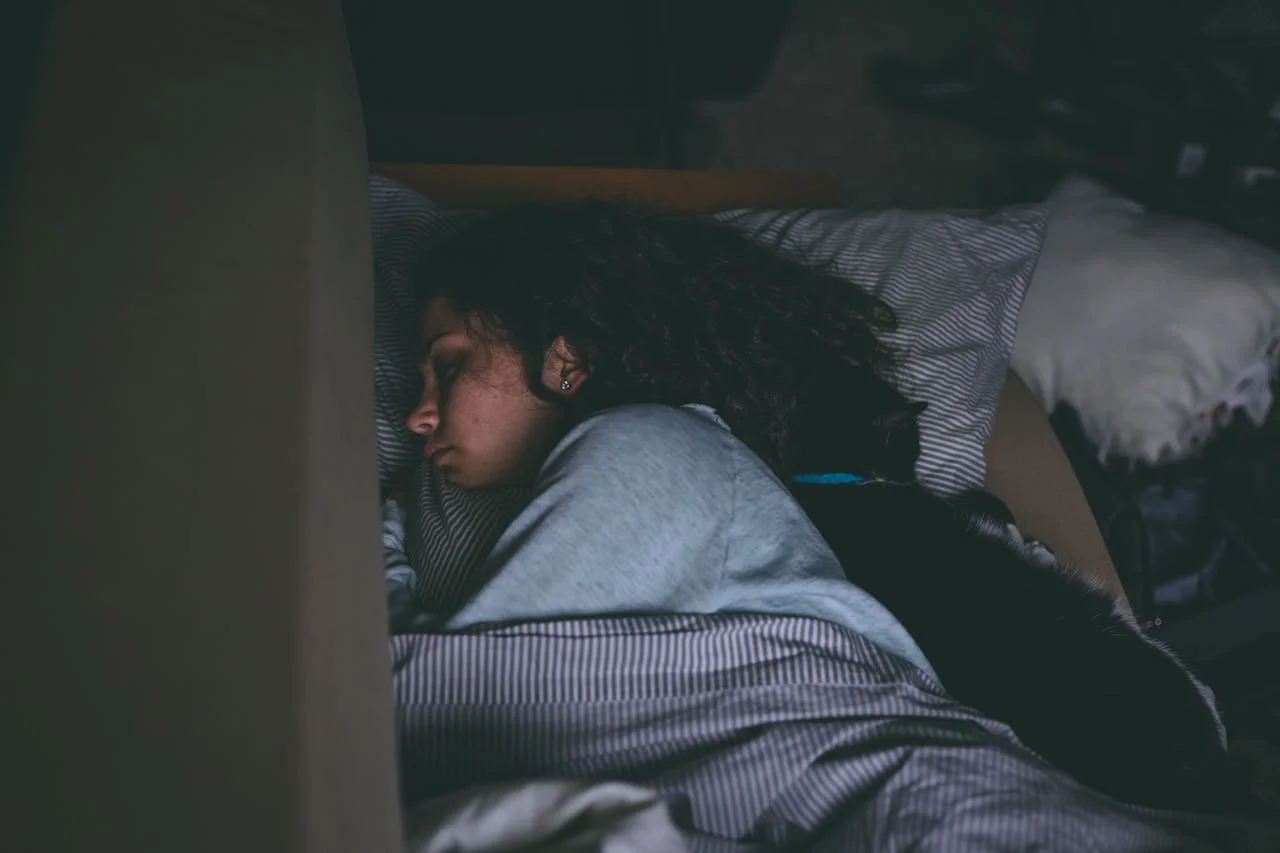How to Calm Your Anxiety at Night
If you’ve ever found yourself wide awake at 2 a.m., your mind racing with worries and what-ifs, you’re not alone. Anxiety often feels worse at night when the day’s distractions fade and we’re left alone with our thoughts. The stillness of the evening can amplify concerns, making it hard to relax and drift into a peaceful sleep. But there are ways to calm that nighttime anxiety, helping you reclaim your evenings and get the rest you need.
Why Does Anxiety Feel Worse at Night?
Before diving into strategies, it’s helpful to understand why anxiety tends to ramp up at bedtime. Several factors contribute to nighttime anxiety:
Lack of Distractions: During the day, work, conversations, and daily activities keep our minds occupied. At night, there’s less stimulation, allowing anxious thoughts to surface more prominently.
Increased Fatigue: When we’re physically and mentally tired, our ability to manage stress decreases, making us more vulnerable to anxiety.
Hormonal Changes: The body’s levels of stress hormones like cortisol fluctuate throughout the day. For some people, these changes can heighten feelings of anxiety in the evening.
Tips for Calming Nighttime Anxiety
While anxiety can feel overwhelming, there are practical strategies to help calm your mind and body before bed:
Create a Relaxing Bedtime Routine
A calming routine signals to your brain that it’s time to wind down. Consider incorporating activities like reading a book, taking a warm bath, or practicing gentle stretches. This can help transition your body from the stress of the day to a more restful state. Consistency is key, so try to follow the same routine each night.Limit Screen Time
Exposure to screens, especially right before bed, can worsen anxiety. The blue light emitted by phones, tablets, and computers interferes with the production of melatonin, a hormone that helps regulate sleep. Try to power down electronics at least an hour before bed and opt for soothing activities like journaling, listening to calming music, or meditating instead.Practice Deep Breathing Exercises
Anxiety often triggers a physical response, including rapid, shallow breathing. This type of breathing can signal your body that something is wrong, increasing anxiety. To counter this, practice deep breathing exercises like the 4-7-8 technique: inhale deeply for 4 seconds, hold the breath for 7 seconds, and then exhale slowly for 8 seconds. This method helps activate your body’s relaxation response.Use Progressive Muscle Relaxation
Progressive muscle relaxation is a technique that involves tensing and then slowly releasing different muscle groups, starting from your toes and moving up to your head. By focusing on the tension and release, you help your body let go of built-up stress and create a state of physical relaxation.Challenge Anxious Thoughts
If your mind is racing with worries, try challenging those thoughts with a technique called cognitive restructuring. Ask yourself questions like, “Is this worry based on fact or fear?” or “What would I tell a friend in this situation?” Shifting your perspective can reduce the intensity of nighttime anxiety and help you regain a sense of control.Try a Grounding Exercise
Grounding techniques are great for redirecting your focus away from anxiety. One popular method is the 5-4-3-2-1 exercise. Identify five things you can see, four things you can touch, three things you can hear, two things you can smell, and one thing you can taste. This exercise engages your senses and brings your attention back to the present moment.Write Down Your Worries
If your mind is buzzing with to-dos or unresolved problems, try a “brain dump.” Write down everything on your mind, without editing or organizing. This exercise allows you to release those thoughts onto paper and gives your brain permission to let go for the night.Avoid Caffeine and Heavy Meals Before Bed
What you eat and drink in the evening can affect your anxiety and sleep quality. Caffeine and sugar can increase restlessness, while large, heavy meals can cause discomfort that may keep you awake. Try opting for a light snack, such as a banana or a handful of almonds, and herbal tea to soothe your system.
Final Thoughts
Managing nighttime anxiety can be challenging, but with a combination of self-care strategies, it is possible to create a more peaceful evening routine.
If you feel you need help with anxiety, don't hesitate to reach out and book an appointment for anxiety counseling.

